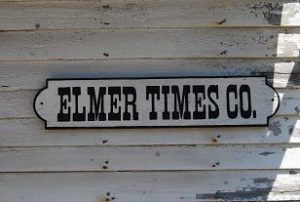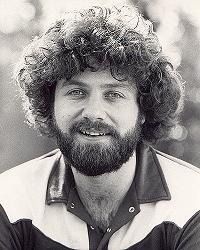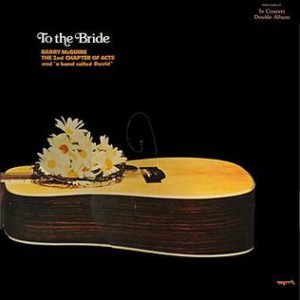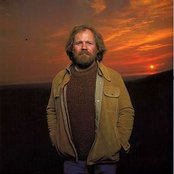This is mark Joseph “young” blog entry #279, on the subject of My Journey to Becoming a Writer.
This is a response to a question asked by Georgia Bester on the Christian Music Network Musician’s Corner at Facebook, which reads:
Hello [emoticon omitted]
For those of you in writing ministry. I would love to hear about your journey. How did you know for sure that this is where the Lord wanted you?
That link probably does not work if you do not belong to that group, as it is a closed group, but that is her entire post.
Uncertain exactly what she meant, I asked for clarification, specifically whether she was talking about songwriting or bookwriting, and she answered:
Christian Author+-songwriter
–which I take to mean both books and music. I write both, and there have been separate but connected paths that brought me to them.

By the time I was twelve I had settled in my mind that I would be a professional musician, in the popular vein. I already played piano, clarinet, oboe, saxophone, ukulele, and I think fife and recorder, and my singing was noteworthy–my kindergarten teacher had identified me as her “little songbird”. I could hold a part in a choir, and had a significant range for a boy. I had even tried writing music, but none of it was any good, and it was frustrating.
I was introduced to another boy my age (John “Jay” Fedigan) who played the guitar, sang, and wrote songs. Working with him I learned how he wrote songs, and started doing so myself. Because in order to play keyboards with him I was going to need to know what he was playing on the guitar (and he was clueless when it came to notes and chords) I learned to play the guitar. Before I’d finished high school I’d added bass guitar, tuba, flute, and several other instruments to the list, but I got good on playing the guitar, singing, and writing my own songs. This was the late sixties/early seventies, so these songs were all love songs, usually sad, or protest songs.
The Jesus Movement hit our town in a big way. I actually had become a Christian when I was thirteen, in 1968, but it hadn’t had a lot of impact on my life because I’d always been a reasonably decent churchgoing kid. The Jesus Movement was something different, people for whom faith was the center of their lives in a real way. I got dragged along the edge of this, and became more involved, and realized that the songs I was writing weren’t really worth singing, in a message sense, so I started to shift more toward writing Christian songs, and by 1972 (middle of junior year high school) that’s pretty much all I wrote and all I sang. (I did write a piece for my high school band, and a setting of the Lord’s Prayer which my high school chorus performed, and of course performing with school groups I did the music chosen by the directors.) The band that had been a precision rock band called BLT Down became an evangelistic Christian vocal rock band called The Last Psalm, and for a couple years made a splash in coffeehouses and colleges in northern New Jersey.
I went to college and decided to major in Biblical Studies (rather than music) because I thought having that degree would open more doors for music ministry than the other. I did take a music theory class, but I also took a creative writing fiction class, mostly because it sounded interesting and I imagined that I might one day write the next major Christian fantasy novel, akin to Tolkien’s work. I played in a couple of bands, including Jacob’s Well and Aurora, which sometimes included some of my songs in the repertoire.
Coming out of college I mostly spun my wheels for years trying to get some traction. My wife’s theory was that I would get a good paying job with my college degree and pursue music on the side until it reached the point that it paid for itself. That never happened. Instead, the Lord worked some strange circumstances to land me on the air at a small but important Christian radio station (it had been the twelfth most important Contemporary Christian/Rock radio station in the country shortly before I arrived, despite being in the sticks and reaching part of northern Delaware as its primary audience–no offense to people in Delaware, but it’s not one of the top markets in the country). I did some solo concerts with teaching included and continued to write songs for them. I met a lot of people in the Christian music world, but by this point my recording equipment had died and I had no recordings to give them and no spare money with which to repair the recorders.
During this time I headed up a project to launch a radio station news letter, and wrote much of the content for it. We had it printed by a local newspaper, who traded printing costs for advertising time, and so I became acquainted with the associate editor of The Elmer Times. In our chatting we hit an idea by which I would write a few pieces of political satire for his paper, under the byline M. Joseph Young, so that it wouldn’t be obvious that this was written by the DJ on the local Christian radio station. I think two were published, and I might have copies of them buried somewhere.
After five years I parted ways with the radio station; God had in essence told me it was time to go, and I was so burnt from the struggle I didn’t ask where I was going. That turned out to be nowhere fast. I was asked at this time to head a band called TerraNova, which I did for a couple years, but a guitarist who came to us very humbly then made himself indispensable then fell apart and quit pretty much put an end to that. I was going through jobs fairly quickly, four jobs in two years none of them going anywhere, and my wife, who finished her nursing degree, said I should go back to school. I could tell you about the very strange search for continuing education and how I wound up going to law school, but suffice it that I did, and graduated with a Juris Doctore and a mountain of debt, only to be denied admission to the New Jersey Bar because of the debt.
While I was trying to resolve this problem, I was asked to help a friend of a friend who was trying to write a role playing game. I was good at role playing games and good at writing; he was quite creative and had a core of excellent ideas for the game, but he was a terrible writer, had no head for game mechanics, and was very disorganized. We collaborated, and after five years of work and personal tension he dropped out and left me to publish Multiverser: The Game. I kept the nom de plume M. Joseph Young for that project, and for most of what came from that.
I attempted to launch another band, Cardiac Output, which played a bit locally before the pressures and problems of my family life created by the combination of the debt and the fact that getting a law degree wasn’t solving anything was too much and the band collapsed.
In order to promote the game I started writing web pages, first as my own sites. I wrote on multiple topics–Bible materials, but also role playing game stuff, time travel pages, some stuff on law and politics. My own originally several web sites grew (eventually I consolidated them into one huge site, M. J. Young Net) and I was invited to write material for other web sites, most of it role playing game stuff, but some on other subjects. I was occasionally paid small amounts for these.
The company that published Multiverser got a crazy idea to create a comic book based on the concept, and it fell to me as the company’s chief writer to create the characters and stories. I had written enough for three issues (six stories, two for each of three characters who would rotate) when the tiny company’s art department said it couldn’t be done without increasing the size of the department sixfold, so the stories got shelved for a few months–and then I suggested that they could be turned into the beginning of a novel. The company agreed, and eventually published Verse Three, Chapter One. A lot of what brought that about is discussed elsewhere.
Something had been nagging at me ever since TerraNova had dissolved: a lot of Christians had come to Christ and were never told what to do next. I felt that a need existed, and in very short order wrote What Does God Expect? A Gospel-based Approach to Christian Conduct. The company that published the novel did not want to get the image of being a “Christian” book publisher, so I talked to a lot of people about it, and wound up self-publishing it. This was followed by two more short books.
Laced into this, when I was at the radio station I became aware that one of the most Christian games I had ever played was being attacked by Christians, and so I spoke in defense of the game on the air, and put together notes for what might be an article. A few years later I wrote that article, and tried to find a magazine interested in publishing it, but I’ve never been good at self-promotion so it didn’t go anywhere. When I started putting things on the web I finished that article as Confessions of a Dungeons & Dragons(tm) Addict, and it caught the attention of Reverend Jim Aubuchon, who was co-founding an online group then called the Christian Role Playing Game Association. He invited me, I wasn’t interested, again circumstances intervened and I was just about forced to join. I was then asked to head a committee, and from that told that put me on the board of directors. The group changed its name to Christian Gamers Guild, and the Vice President and the President both resigned in short order, the Chaplain decided that that made him President, and we needed a Chaplain, so he asked me to fill the slot just until we could finish the group’s constitution and hold elections. I’d never won an election for anything in my life, and as far as I could see the Chaplain didn’t really do anything, so I figured I could wear the title for a couple months and then someone would replace me.
After those couple months there was an election, and I was nominated and elected to continue in the position. After wearing the title for a couple years I decided that I ought to do something, so I started writing a monthly column entitled Faith and Gaming. (I had also simultaneously started writing a weekly column for one of the role playing game web sites, Gaming Outpost, entitled Game Ideas Unlimited.) I wrote this series for four years, disrupted by a computer crash. People occasionally asked me if I was going to write more, or if I was going to put the material in a more accessible format, so I self-published Faith and Gaming. A few years later a publisher in the industry approached me with the suggestion that they could republish an expanded edition with a few other articles I’d written on the subject in other venues, and I agreed.
In the end, I write and I compose because it’s what I do. Much of what I write and all of what I compose is Christian, but then, that’s because I am Christian, and even when I’m writing about law or politics or role playing games there is a degree to which my Christianity is part of that–C. S. Lewis once commented that the world did not need more Christian books, but more books by Christians. I’m not persuaded that he was right, as Christians need Christian books, but I think he was onto something with the notion that if the best books on secular subjects are written by Christians, unbelieving readers are going to find traces of the faith reflected in those books, undermining their unbelief.
So Georgia, if you’re asking how I knew God had called me to write, I don’t know that I ever really gave it much thought. Writing is not one of the ministries; it’s one of the tools of ministry, and if you’re called to ministry and you can write, you’ll probably find yourself using writing as one of the tools of that ministry. I write because I cannot help writing, and I sing and compose because I cannot help doing so, just as I teach and explain because it is innately part of me to do so. If you are called to something, you will find yourself doing it, or doing something like it, without thinking about it.
I know this has been long, but I’m going to close with a few links to other articles you might find helpful on the issue:









